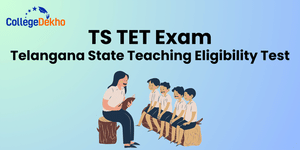T. John College News

B.Pharm Admission Process for Private Colleges in India 2025: Eligibility, Fee, Application, Selection Process
Admissions to a 4-year BPharmacy course in India are based on a student’s merit in Class 10+2 or an equivalent examination. A Bachelor’s in Pharmacy course places focus on pharmaceuticals, including the development, production, and distribution of medications. Students who are interested in learning about subjects such as pharmaceutical chemistry, pharmacology, and pharmacognosy, which cover drug formulation and ethical pharmacy practices, should enroll in this course.
Related News

List of UGC-approved Universities for Distance B.Ed Course
If you are exploring Universities for pursuing Distance B.Ed course, then you must check for two basic approvals. Firstly, the university must be UGC recognised (through the Distance Education Bureau: DEB). Secondly, the B.Ed programme itself must be approved by the National Council for Teacher Education (NCTE) which is offered by many colleges and institutions. Students must note that there will always be a risk of your degree getting rejected if any institution offering Distance B.Ed does not match both the criteria. Your qualification for CTET, state TETs, and government school recruitment will be rejected without DEB and NCTE approval even if you have completed all exams and paid the full fee.

What Factors Affect B.Ed Cut-off Scores at Top Colleges?
One of the first things that causes confusion and apprehension when you begin preparations for B.Ed entrance exams is the cut-off scores. One year they shoot up, and the other year they fall flat without any apparent reason. Whether it is the UP B.Ed JEE, Maharashtra B.Ed CET, or admissions to DU and BHU, these patterns become evident and can be easily deduced. A knowledge of the workings of cut-offs will thus help you bear expectations and devise an admission strategy accordingly.

How to Become a Government Teacher Without B.Ed?
You can become a government teacher without doing a B.Ed degree. For many posts, especially Primary and some Upper Primary roles, NCTE allows D.El. Ed or B.El.Ed has valid teaching qualifications. Your eligibility mainly depends on NCTE norms + CTET / TET rules issued by the central and state governments.

Karnataka B.Ed 2nd Selection List 2025 OUT: Download PDFs Now
Karnataka B.Ed 2nd Selection List 2025: The Department of School Education, Karnataka has published the B.Ed Second Selection List 2025 on December 15 through its official website, schooleducation.karnataka.gov.in. The allotment results have been released separately for different streams, including Science, Arts, Science Special, and Arts Special groups. This second round list has been prepared based on the options submitted by candidates during the option entry process to fill the remaining vacant seats after the first round of counselling.

TS TET 2026 Exam- Admit Card (Soon), Pattern, Syllabus, Result, Cut off
TS TET 2026 Exam is scheduled to be held from Jan 3 to 31, 2026. The admit cards will be made available by the Government of Telangana School Education Department on Dec 27, 2025 at tgtet.aptonline.in. The TS TET 2026 exam, or the TG TET exam, is commonly known as the Telangana State Teacher Eligibility Test. This entrance test helps determine the eligibility of students for various teaching posts across different private and public schools in Telangana. It is held twice a year and is conducted in two phases: Paper 1 (for Classes 1 to 5) and Paper 2 (for Classes 6 to 8). Students who want to teach Classes 1 to 8 are required to appear for both Paper 1 and Paper 2. Check out the TS TET 2026 exam eligibility criteria, application process, syllabus, exam pattern, and other relevant information here.
Related Questions
Admission Updates for 2026
Chandigarh University
Mohali (Punjab)
Doaba College
Jalandhar (Punjab)
Oriental University Indore
Indore (Madhya Pradesh)
Jhankar Group of Colleges Gurugram
Gurgaon (Haryana)








